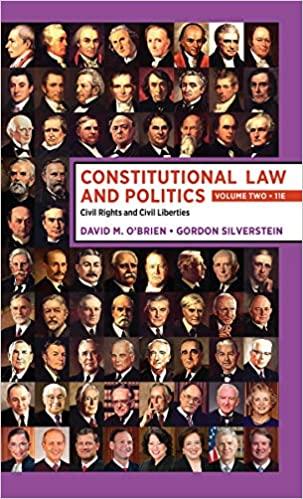Question
1.P operates a pub in premises owned by L. Due to poor business, P wishes to terminate the 3-year lease agreement after the end of
1.P operates a pub in premises owned by L. Due to poor business, P wishes to terminate the 3-year lease agreement after the end of the first year. Accordingly, P voluntarily cancels the license to operate the pub. He then notifies L that he is terminating the lease as he cannot operate the pub after cancelling the pub license. P relies on Clause 9 in the lease agreement that provides that "in the event of the license being revoked, cancelled or suspended, either party may terminate the lease agreement". P has validly terminated the lease and is not liable for breach of contract
A.True
B.False
2.A Bank is proposing to extend credit facilities to a subsidiary company and requires the parent company to be a guarantor so that in the event of default by the subsidiary company, the Bank can claim from the parent company. In which of the following situations will the parent company be legally liable?
A.The parent company undertakes to exercise its influence on the subsidiary company to ensure that it meets its financial obligations to the Bank
B.The parent company will do whatever is necessary to ensure payment by the subsidiary company of its indebtedness to the Bank
C.The parent company's policy is to ensure that the subsidiary company is in a position to meet its liabilities to the Bank
D.None of the above
3.B and S entered into a written contract for the manufacture of specified equipment by S at a fixed price to be delivered by 1 April. Soon after S started work, B orally requested S to change certain specifications which S agreed. S then produced and delivered the equipment but B refused to accept delivery, contending that it did not conform to the original specifications. What is the legal position?
A.B can reject the goods since they did not conform to the original specifications when delivered
B.The oral agreement to change the specifications is not enforceable as it cannot amend the written contract
C.B cannot reject delivery as S changed the specifications at the request of B
D.There is no consideration for the oral agreement
4.C company headhunts D and writes him a letter of intent. D agrees to start work before the contract of employment is signed. Within 2 months of D commencing work, C decides not to hire him which is before any legally binding contract is signed. What is the legal position?
A.C is liable to D for breach of contract
B.C is not liable to pay for the work done since there was no agreement to pay for pre-contractual work
C.C is liable to pay 2 months wages under the contract if it had been signed by both parties
D.D can claim a reasonable amount for work done
5.The contract of employment between D, the employer, and P, the employee, contains a "payment for loyalty" clause that provides that P will earn the extra payment only if he remains in the employment of D for a specified period. P therefore does not expect any extra payment if he leaves D's employment before the end of the specified period. This is a restraint of trade clause preventing P from resigning and working for another employer during the specified period.
A.True
B.False
Step by Step Solution
There are 3 Steps involved in it
Step: 1

Get Instant Access to Expert-Tailored Solutions
See step-by-step solutions with expert insights and AI powered tools for academic success
Step: 2

Step: 3

Ace Your Homework with AI
Get the answers you need in no time with our AI-driven, step-by-step assistance
Get Started


